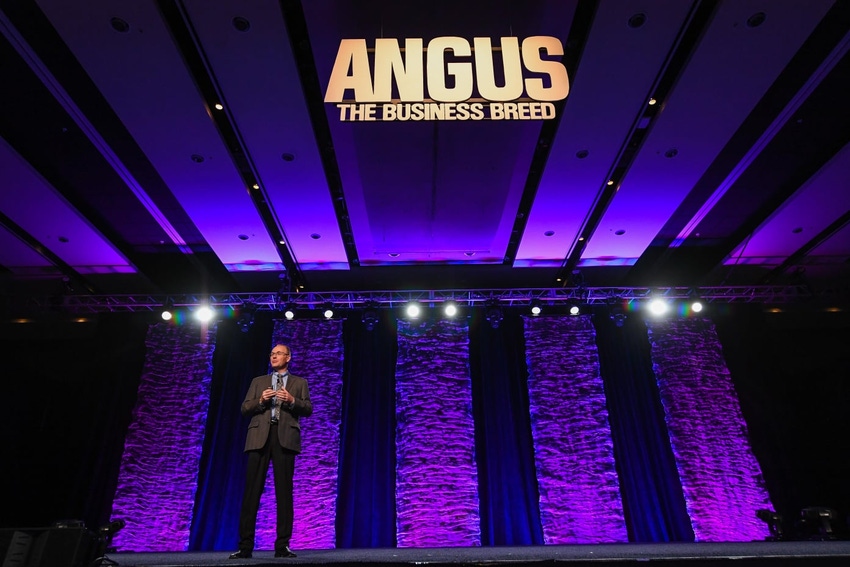Beef industry future called bright
American Angus Assn. chief executive officer Mark McCully is optimistic on future of beef industry.

Despite what’s so often said in social and media channels, the facts very much show that consumers continue to want meat and that the future for the cattle industry is bright.
American Angus Assn. chief executive officer Mark McCully shared that insight during the opening general session of the national Angus convention in Reno, Nev., in early November. McCully told the group's membership that he is optimistic about the future for the Angus breed and the cattle industry in general.
“I see the headlines with the accusations about how we're mistreating our cattle or how we're mistreating the land. You know my blood pressure gets just as high as yours when I see the advertisements around alternative proteins and ‘fake’ meat. Yes, those are things that we need to be aware of, but the facts are out there, and … I’m optimistic as we look at our business going forward,” McCully said.
To start, McCully said, people are still eating meat. The data suggest that there hasn’t been much change in the percentage of meat eaters since 2007. Over the last 10-plus years, only around 3% of the population has identified as vegan and only 4% as vegetarian. The rest have remained meat eaters, according to the 2018-19 "Consumer Beef Tracker."
“There's a lot of noise out there, but the fact is that consumers want our product, and they're consuming a lot of it,” McCully said. “We are in a business with a product that has an incredibly high demand, and we in the beef industry are producing the premium product -- the most craved product -- within that whole category.”
Looking at animal proteins in general, Cattle Fax projects that U.S. per capita consumption of red meat and poultry in 2020 will be the highest it has been in 20 years, at 222 lb.
McCully said he also is encouraged by what seems to be a shift in how the media have been reporting on the topic of meat in the last few months. Some media outlets haven't always painted the beef industry in the most positive light, but lately, they have run articles on how red meat might be a good part of a diet and how “fake” meat may not be all that nutritious or environmentally friendly, he said.
With that said, however, McCully acknowledged that there is still a lot of work to do. “I'm not putting my head in the sand to some of the realities that we have to get through to consumers to help them understand what it is we really do, but I do believe our industry has woken up. We looked up and realized the importance of engaging in this discussion.”
McCully closed by noting that exciting things are taking place on the maternal side of the business. It has gotten a handle on cow weight and carcass quality, he said, noting that those are highly heritable traits and are fairly easy to measure. It is now time to also look at fertility, feed conversion and disease resistance -- things that are harder get at during genetic selection, McCully said.
“We have to be proactive, and we have to get out there and be a little more transparent in what we're doing in order to make sure that consumer ultimately trusts us. I feel like we've got the tide turning just a little bit, and I'm optimistic about that,” McCully said.
About the Author(s)
You May Also Like


.png?width=300&auto=webp&quality=80&disable=upscale)
